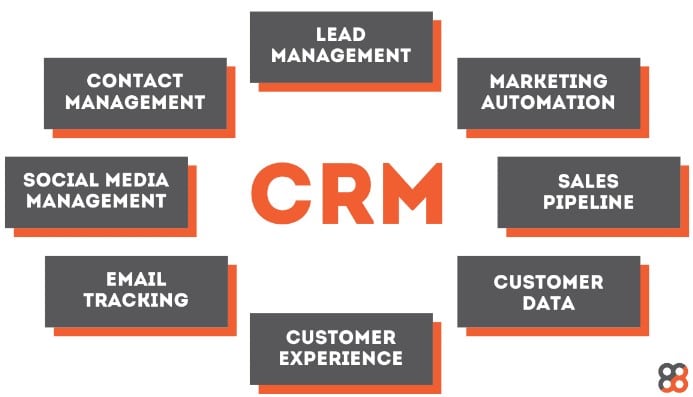Why Your Business Needs a CRM and How to Choose the Right One
Why Your Business Needs a CRM and How to Choose the Right One – Customer Relationship Management (CRM) is an essential part of every business. It helps businesses build a better relationship with their customers, increase customer satisfaction, and drive sales. In this article, we will discuss why your business needs a CRM and how to choose the right one.
What is a CRM?
A CRM is a software solution that helps businesses manage their interactions with customers and potential customers. It stores customer information and tracks all interactions with them, including phone calls, emails, social media interactions, and in-person meetings. A CRM system allows businesses to manage their sales pipeline, automate sales processes, and provide better customer service.
Why Your Business Needs a CRM
- Centralized Customer Data
One of the primary benefits of a CRM system is that it centralizes customer data. With a CRM, all customer information is stored in a single location. This makes it easy for sales reps and customer service teams to access customer information quickly and easily.
- Improved Customer Service
CRM systems help businesses provide better customer service. When a customer calls, the customer service rep can quickly access their information and see their history with the company. This enables the rep to provide a more personalized and efficient experience for the customer.
- Sales Pipeline Management
CRM systems help businesses manage their sales pipeline. Sales reps can track their leads, manage their opportunities, and forecast revenue. This helps businesses identify areas for improvement in their sales process and make data-driven decisions.
- Marketing Automation
CRM systems can also help businesses automate their marketing efforts. With a CRM, businesses can create targeted marketing campaigns, track their results, and analyze their performance. This enables businesses to improve their marketing efforts and drive more sales.
- Increased Efficiency
CRM systems help businesses become more efficient. With a CRM, businesses can automate routine tasks, such as data entry and lead management. This frees up time for sales reps and customer service teams to focus on more high-value activities.
How to Choose the Right CRM
Choosing the right CRM system can be challenging. Here are some factors to consider when selecting a CRM:
1. Features
The first thing to consider is the features you need. Some CRMs are more focused on sales, while others are more focused on marketing or customer service. Make sure the CRM you choose has the features you need to meet your business requirements.
2. User-Friendliness
Another important factor is user-friendliness. The CRM system should be easy to use, with a simple and intuitive interface. This will help ensure that your team adopts the system and uses it consistently.
3. Integration
The CRM system should integrate with your other business systems, such as your marketing automation or accounting software. This will help streamline your business processes and avoid duplication of efforts.
4. Customization
The CRM system should be customizable to meet your specific business needs. This includes the ability to add custom fields, create custom reports, and automate custom workflows.
5. Support
Finally, make sure the CRM vendor provides adequate support. This includes technical support, training, and ongoing support for your team. Choose a vendor that has a proven track record of providing excellent customer support.
Conclusion
In conclusion, a CRM system is an essential tool for any business that wants to improve customer service, increase efficiency, and drive sales. When selecting a CRM, consider the features, user-friendliness, integration, customization, and support. By choosing the right CRM system, your business can reap the benefits of improved customer relationships and increased sales.
FAQs
1. What is the cost of a CRM system?
The cost of a CRM system varies depending on the vendor Certainly, I apologize for any confusion. Here are five additional FAQs to further explore the topic:
2. Can a CRM system be used by businesses of all sizes?
Yes, CRM systems can be used by businesses of all sizes. There are CRM systems that cater to small businesses as well as those designed for larger enterprises.
3. How long does it take to implement a CRM system?
The time it takes to implement a CRM system depends on the complexity of the system and the size of the business. For smaller businesses, implementation can take a few weeks, while for larger enterprises, it can take several months.
4. Can a CRM system be customized to fit a specific business process?
Yes, CRM systems can be customized to fit specific business processes. This includes adding custom fields, creating custom reports, and automating custom workflows.
5. Is it possible to integrate a CRM system with other business systems?
Yes, CRM systems can be integrated with other business systems, such as marketing automation or accounting software. This can help streamline business processes and avoid duplication of efforts.
